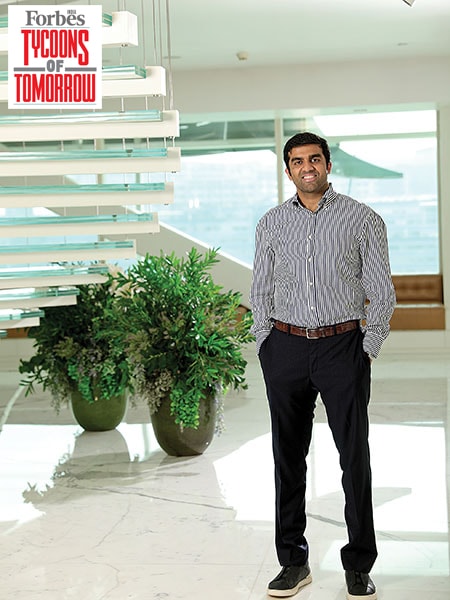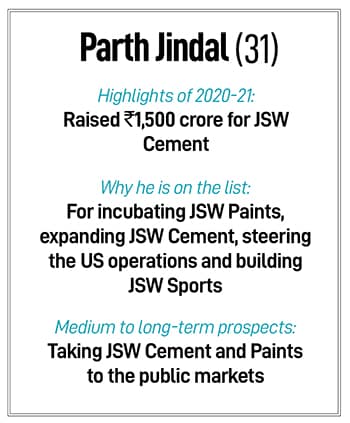
Parth Jindal: The game changer
Parth Jindal has carved a niche for himself in the JSW Group, overseeing cement, paints, sports, and the US Steel operations
 Parth Jindal, Managing Director, JSW Cement and JSW Paint
Parth Jindal, Managing Director, JSW Cement and JSW Paint
Image: Mexy Xavier
During his time at Harvard Business School (HBS), Parth Jindal was keenly aware of the need to move the JSW Group away from cyclical businesses. Steel, its mainstay, was subject to the vagaries of the commodity cycle. Why not explore opportunities in adjacent but less cyclical industries, he thought.
It was during his second year that Jindal worked on a project to understand the group and identify new business opportunities. He’d gotten a four-credit course approved by HBS. “There was also the desire to do something on my own and not just spend time in the legacy steel business,” says Jindal, MD, JSW Cement. This would also help him cement his position with employees. He didn’t want his identity to be tied to primogeniture.
By mid-2016, when Parth returned to India, he’d already hired a CEO for a new paints business. He’d studied the market and was convinced that a new player could break into what he believes is an oligopolistic structure, with Asian Paints controlling 55 percent of the market and Berger Paints accounting for 17 percent.
(This story appears in the 30 November, -0001 issue of Forbes India. To visit our Archives, click here.)




 There are some signs that JSW Paints could be turning the corner. Their main strategy has been to offer any colour at the same price. Worldwide, paints are offered at the same price, but, in India, a customer selects a colour and the dealer puts a price to that shade.
There are some signs that JSW Paints could be turning the corner. Their main strategy has been to offer any colour at the same price. Worldwide, paints are offered at the same price, but, in India, a customer selects a colour and the dealer puts a price to that shade. 




